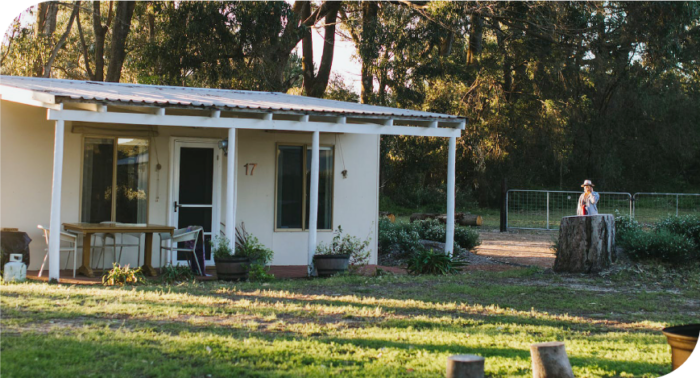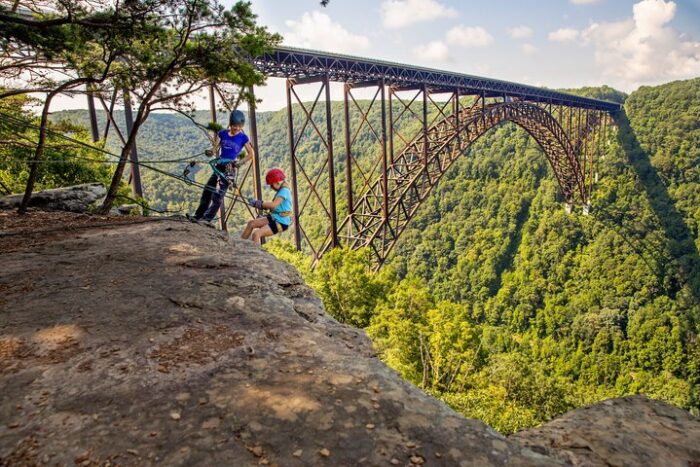
In 2016, the Natural Capital Investment Fund (NCIFund) partnered with the Hatfield McCoy Trail Authority and Southern West Virginia Community and Technical College (Southern) to drive recreational tourism development in the coalfields of southern West Virginia. Through ARC POWER funding, the partners launched a revolving loan fund dedicated to financing and providing business technical assistance to new tourism-related enterprises in the area.
Identifying Support for New Businesses
In order to bolster the tourism industry in southern West Virginia, the partners identified that supporting new businesses around the Hatfield McCoy Trail, one of the state’s fastest growing tourist destinations, would be critical. While Hatfield McCoy’s seven ATV, UTV, and dirt bike trails offer unbridled access to outdoor adventure experiences, there were untapped opportunities to grow supporting businesses that offer local shopping, dining and lodging options. Such amenities are key to increasing touristic traffic and encouraging longer stays. Project partners worked hand-in-hand to identify complementary deals, provide business technical assistance and offer affordable capital in order to overcome the typical challenges entrepreneurs face when seeking to launch a business.
Diana Barnette, a West Virginia entrepreneur, worked with project partners to prepare a business plan, identify a site and budget for a large-scale, capital intensive project that would convert the Rita Mall located in Lyburn, West Virginia, into the Appalachian Outpost. The Appalachian Outpost will boast 40,000 square feet of commercial space including restaurants, retail space and 35 cabins that accommodate 400 guests in a campground setting. Subordinated capital invested into the deal by NCIFund was critical to securing capital from a local bank to kickstart this multi-million-dollar project. Despite only half of her planned cabins being opened, Diana is still experiencing strong occupancy numbers.
Offering Support After the Pandemic
In early 2020, the COVID-19 pandemic struck, and state orders closed many businesses, state parks and other destinations to minimize transmission. Among those impacted, the Hatfield McCoy Trail System was mandated to shut down operations for several months. Many businesses near the trail system that were once thriving were now experiencing drastic revenue losses and in danger of permanently closing. In an effort to stem these effects, project partners pivoted to providing flexible, affordable capital to existing Hatfield McCoy tourism-related small businesses impacted by COVID-19 mitigation measures. Diana was able to benefit from these flexible terms as her normal loan payments were briefly halted to help assist with her business’ cash flow.
As restrictions have been lifted and many tourist attractions have been reopened, the future is looking brighter. The Hatfield McCoy was able to reopen just in time for Memorial Day weekend, where visitor numbers reached an all-time high. Demand for outdoor activities is skyrocketing and the Hatfield McCoy trail system is emerging as a go-to destination for the region. The visitor growth of the trails from 35,000 permitted riders in 2016 to nearly 65,000 in 2020 is attributed to the success of ARC’s investment in this effort headed by NCIFund, Hatfield McCoy Trail Authority and Southern. This project demonstrates that during these difficult times, some Appalachian businesses are not only surviving but growing.


